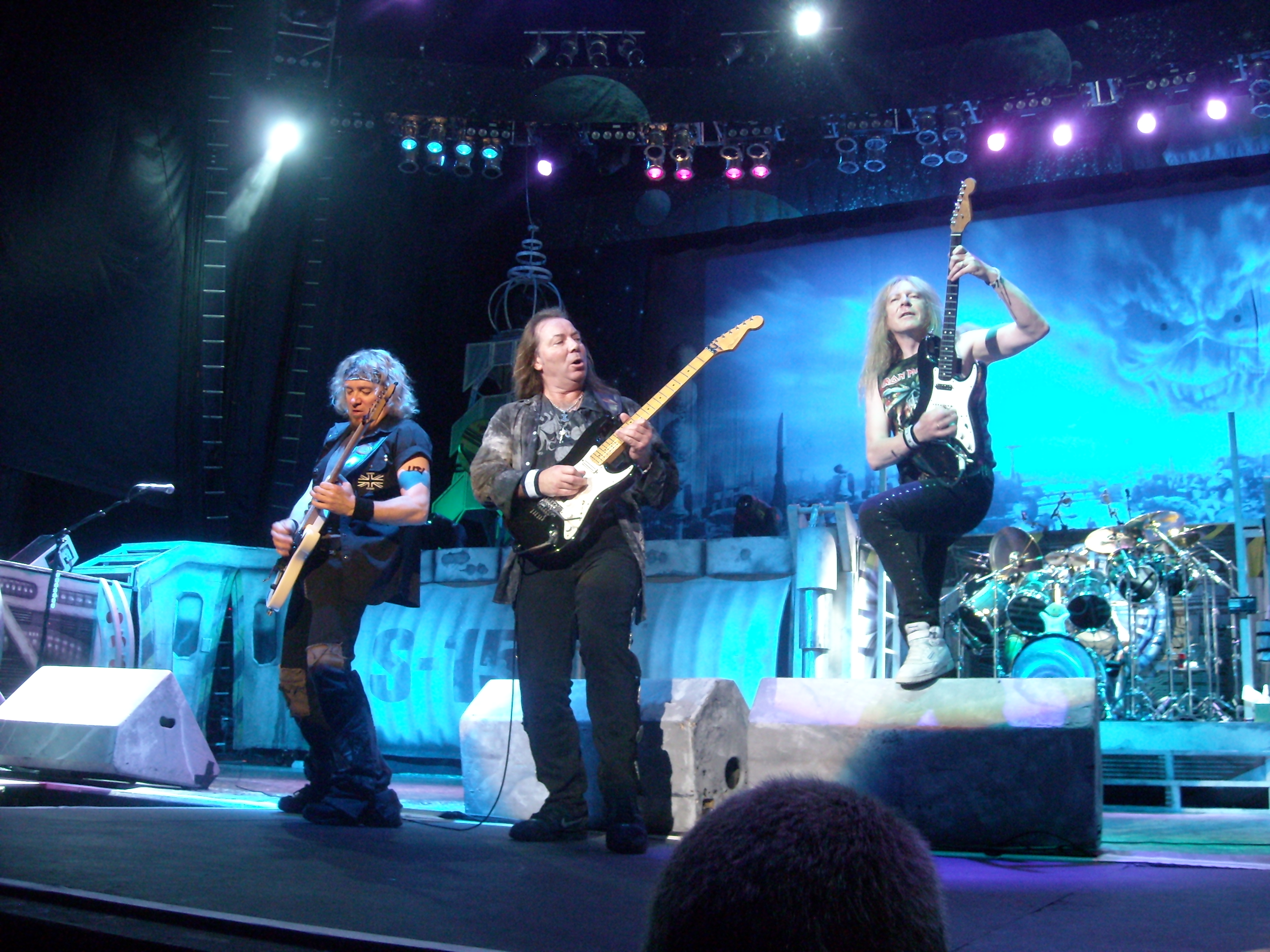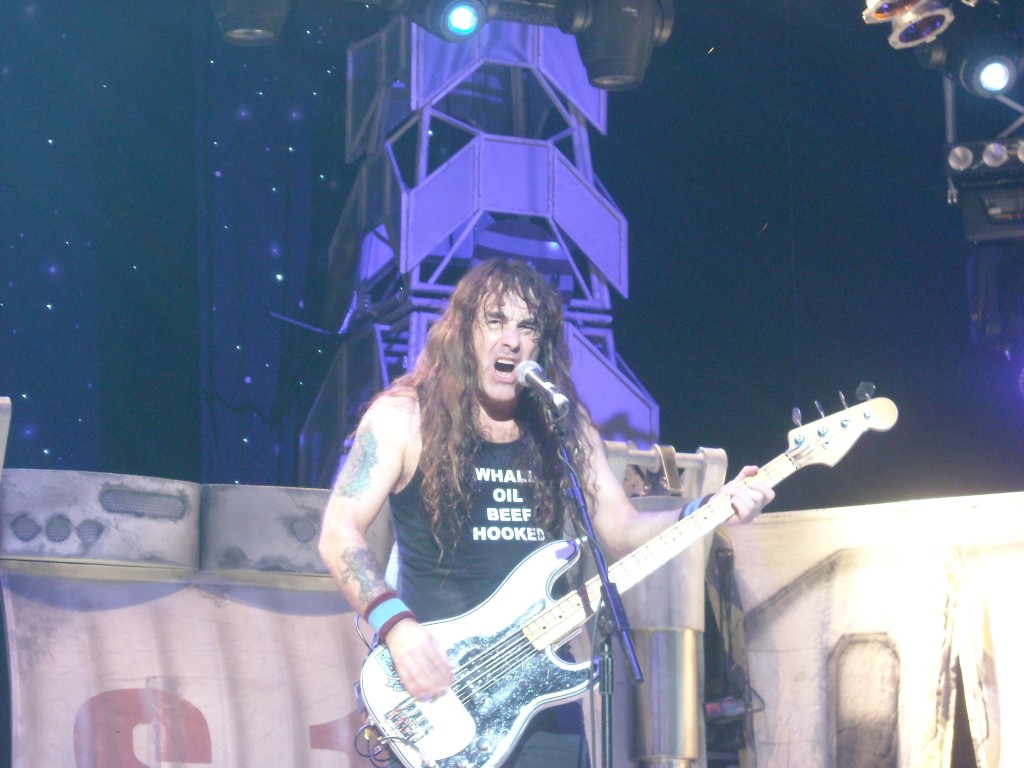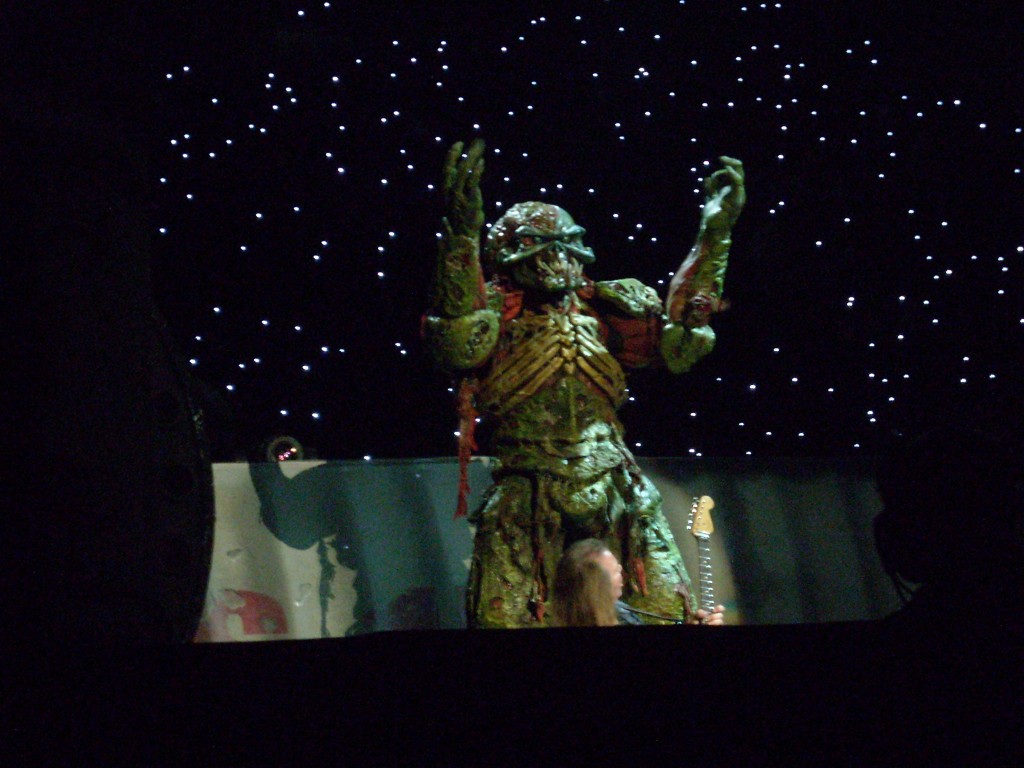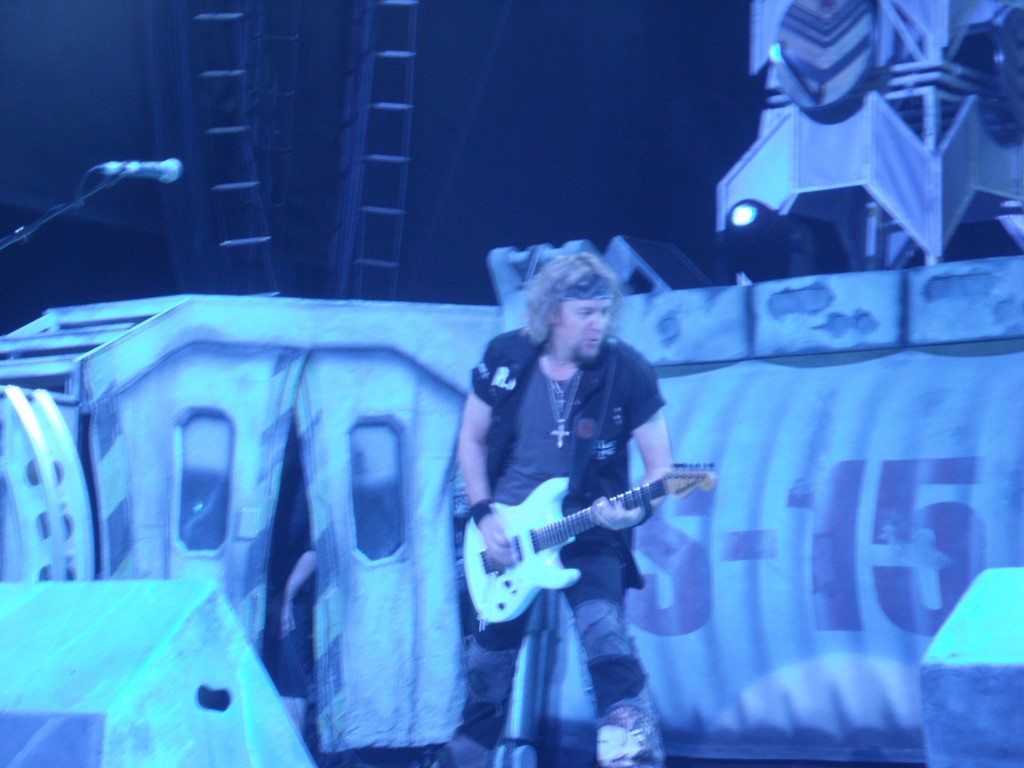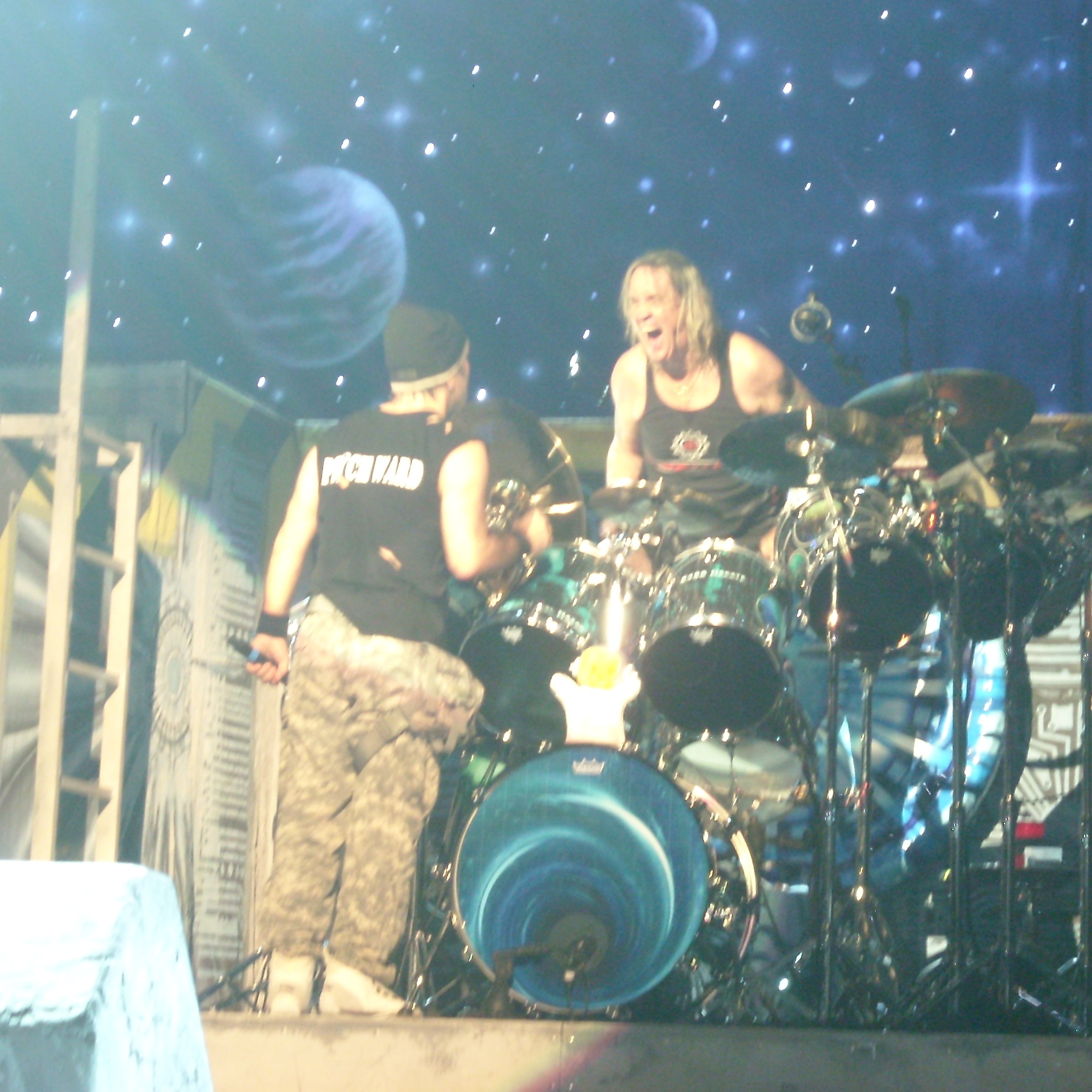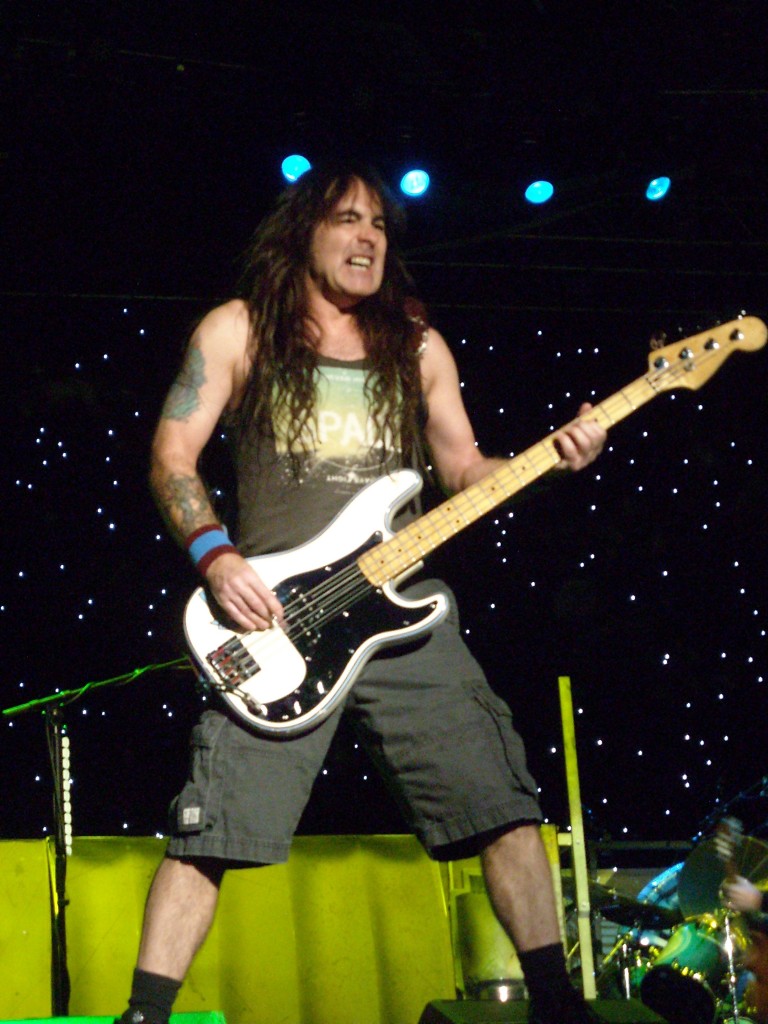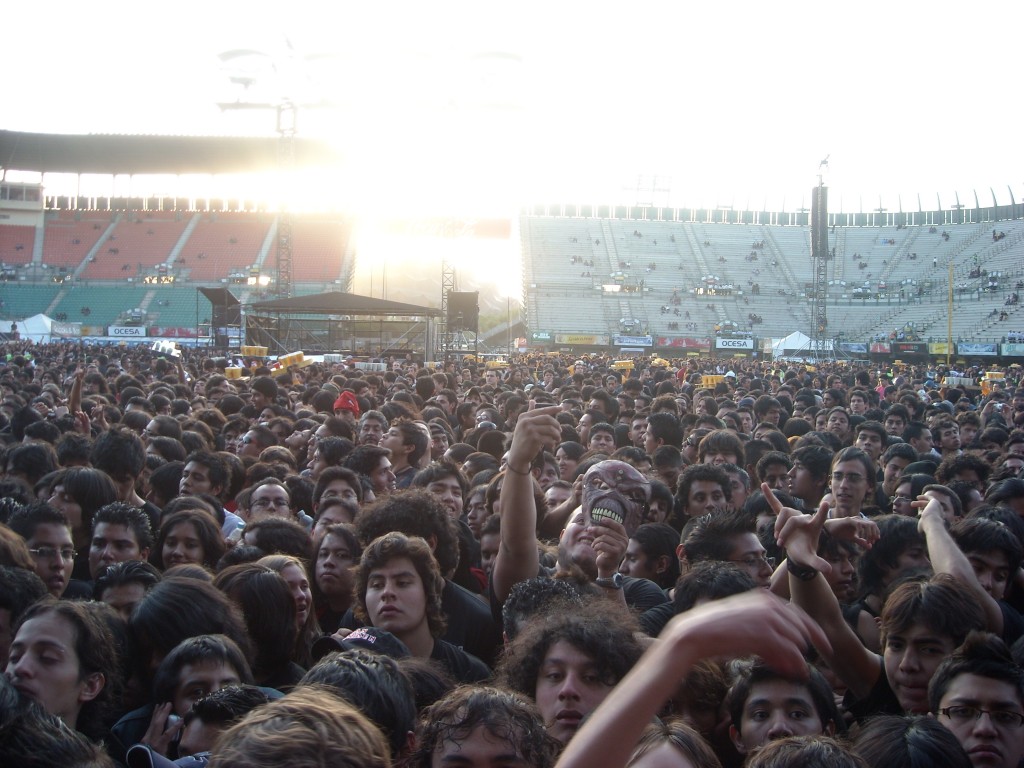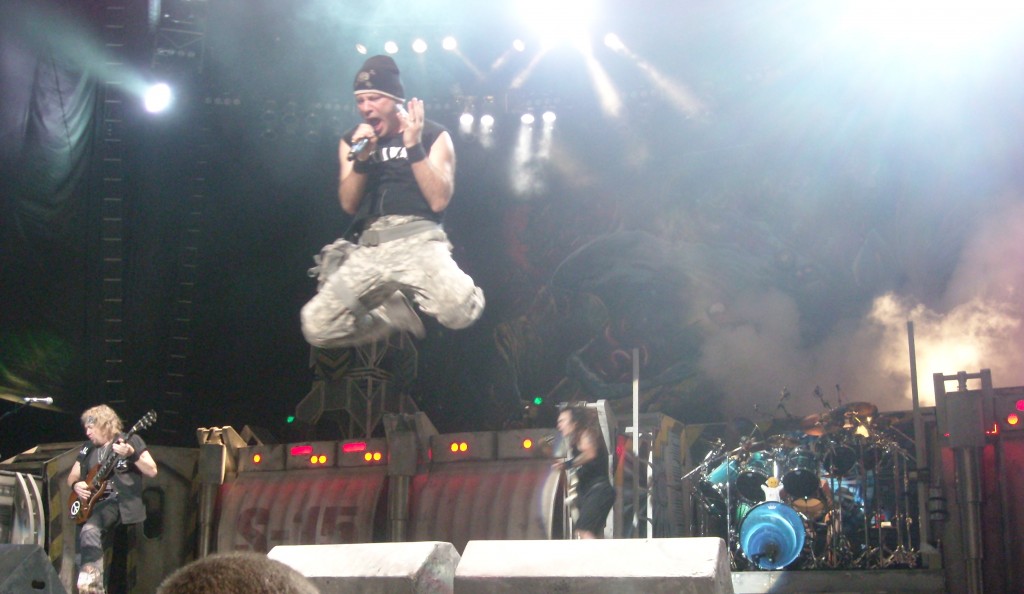Jyra opened her eyes and sat up, startled. One hand went to the locket hanging by her collarbone. The other hand lashed out and grabbed the corner of her bedside table. The smell of earth filled her nose and her room in the Allied Resistance base appeared.
Dreaming, Jyra thought. None of it happened. The attempted rescue mission, her capture by the hospital, her escape…her mind spun faster, unable to process the sudden surge of consciousness. She heard Kip’s voice but it sounded far away.
“Kip Deleanor. That’s my full name.”
The name sounded familiar…she knew she had some association with it, even before she knew Kip.
“Jyra, can you hear me?” a voice asked.
The speaker came into view as Jyra stared toward her bedroom door. Someone was sitting near the foot of her bed in a chair. The long hair meant it wasn’t Kip. The figure spoke again, leaning forward.
“Jyra, it’s me.”
The person came into focus and Jyra felt her lips peel apart from each other as she replied.
“Serana. What’s going on?”
Jyra heard her own voice in her ears as she spoke, the effort to speak obvious in her lagging speech. What happened to me? Why can’t I remember…what’s the last thing I remember?
“There’s a lot to say,” Serana said, standing up to pull her chair closer. Her long hair swung toward Jyra as she reseated herself by the bedside table. Some of Serana’s eyeliner ran in streaks toward the downturned corners of her mouth. All traces of her enthusiastic smile were gone.
“What happened?” Jyra asked. The urgency of the question brought new energy to combat her fatigue.
“Kip and Tony are safe,” Serana said, holding her hands together between her knees.
It took Jyra a moment to remember Tony, but she recalled the shape of his face, the bandages that covered his burns. But none of that happened, she reminded herself.
Then Jyra noticed the fresh cut on the back of her hand Matala had carved. Clarity yielded to a mental onslaught as the memories of everything since leaving for the rescue mission to escaping from the hospital rushed in at once.
“The battle,” Jyra said, her voice suddenly hollow. “The one outside the hospital. What happened?”
“Disaster,” Serana mumbled. “Failures every step of the way. Scouts overlooked entire platoons of hospital reinforcements. Several of our leading ships were ambushed immediately.”
“You rescued Kip and me,” Jyra said. “We got Tony back, too.”
“Minor victory in the greater context,” Serana said looking for at her feet. She sighed and ran an agitated hand through her hair.
“We lost nine ships and nearly seventy resistance members,” she said, still avoiding eye contact. “After the botched mission, there’s no way we can save any survivors. All the hospitals are on high alert.”
The news buried any optimism Jyra might have shared beneath despair. She turned the underside of her wrist upward so she could confirm the absence of the inked code, a permanent mark identifying her as an Allied Hospital patient. The skin remained clear as ever.
“What happened to me?” Jyra asked, trying to move the conversation away from the failed attack. “I remember boarding a ship. It was crowded, but quiet. After that, I don’t know how I ended up back here.”
She rubbed the smooth bedspread and glanced at the familiar walls of her subterranean quarters. Serana didn’t answer for a long time; her head was bowed and she seemed to be collapsing under an invisible weight.
“We ran some tests and discovered a muscle stimulant in your system,” Serana explained, placing her hands on her knees. “It’s not uncommon for new patients to lose consciousness.”
“Is that what Drenal said?” Jyra asked.
Serana bit her lip and shook her head.
“No.” Her voice shuddered as she spoke. “He was part of the attack. Enemy fire hit his ship.”
“Why aren’t we trying to rescue him?” Jyra demanded. “Even if they’re on high alert the hospitals know who he is. They’ll torture him or worse.”
She was about to kick the blanket back, but Serana’s defeated posture made her pause.
“Multiple witnesses saw it,” she mumbled. “No one ejected before the whole ship exploded.”
Jyra felt the darkness from Serana drift toward her with the grim news and coil around her heart and mind.
We rescued him right before I was captured, she thought, struggling to deny Drenal’s death. Rather than throw off the bedspread, Jyra picked at one of the frayed corners. She and Serana sat in silence. MS-231 was the least of Jyra’s concerns as she realized Drenal’s name would be broadcast throughout the base announcing his passing, unless it had already happened. Once again, Jyra was unaware how long she had been in bed, but it didn’t seem to matter now.
Minutes or hours passed. Although she couldn’t see beyond her door, Jyra could sense the inaction beyond her room. All the ships that made it back from the mission were parked in their hangars. No secret rescue operations were planned. The stillness of mourning permeated the entire base.
“I owe many people an apology, especially you,” Serana said, leaning back in her chair.
“What do you mean?” Jyra said.
“I’ve allowed my ego to get the better of me,” Serana said, fixing Jyra with her piercing stare. “I’ve been selfish and my inflated sense of self-importance has hurt the entire resistance.”
“I still don’t understand why you need to apologize to me.”
Serana grimaced and rubbed the knee of her flight suit.
“There’s a sort of rivalry that goes on here, a competition. You remember I said you are the only person I’ve saved from the hospitals? It mattered because I’ve had that failure held up to my face too often. There are people in this base who have helped hundreds of people escape the hospitals and they aren’t shy about sharing it. By the time I saved you, it was hardly for your benefit, but rather my own.”
“It seemed like everyone works together here so well,” Jyra said. “The moment I entered this base, it felt so unified. Everyone is working for a common goal.”
“We are, but it doesn’t mean we all get along,” Serana said. “In a resistance this size, it’s impossible for everyone to treat each other with respect.”
“That’s true of small groups as well,” Jyra said.
“I’m sorry I treated you like a prize,” Serana said. “And I’m sorry I took you on the Liberation mission. Again, ego interfered with better judgment.”
“I was happy to assist.”
“You still had to use a crutch,” Serana said, her eyes locked on Jyra’s again. “No one with common sense would ever ask anyone in your position to do what I asked of you. I pressured you into it. Just like I urged others to participate on this last mission.”
Serana gulped and stared at her lap.
“His eye had barely healed,” she whispered and Jyra knew she was talking about Drenal. “And I insisted he come along. I’ve ruined so many lives.”
“You didn’t fire the rounds,” Jyra said. She wished she could help Serana, but she knew from experience that it wasn’t easy to banish self-blame. Misery only made things worse.
“It’s kind of you to say,” Serana said. “But the fault still lies with me. Tony has been reunited with his sister and you and Kip are alive, which is a relief. Even so, I have to answer to the other friends and families who wonder why one of their own is now dead or missing. Even when it’s not a mission I organized, I must meet them. And there’s nothing quite like facing the accusation that you value one life over another.”
“Everyone you call for a mission has a choice,” Jyra said. “They chose to stand against the real enemy.”
“Grief changes people,” Serana said. “No matter how a person looks on the surface, grief sinks deep within and there are some things you can never see the same way again.”
“Like what?” Jyra asked.
“In my case, stunt skiffs,” Serana said. “As much as I love them and miss them, one crash nearly killed me and, before that, my mother died after her skiff went down. I can’t help but think of her every time I fly Detritan.”
“I’m sorry,” Jyra said. Something about Serana’s attitude reminded Jyra of Macnelia. A driven leader struggling against herself, her memories, Jyra thought.
“What’s the worst part about facing the families of those who are missing?” she asked.
“The exposure to their judgment and distress,” Serana said. “And nearly all of them mention the abuse of my position, which, in their view, I only get away with because of my father.”
Serana glared at the wall, taking several deep breaths. Jyra sensed she didn’t want to talk anymore, at least about this topic. But she was wrong. Serana stared at her hands again and took another long breath.
“I haven’t told you about my father,” she said. “I showed you nearly every corner of this base except for his quarters.”
“Why?”
“It’s complicated, but the biggest reason is because he started the resistance.”
Jyra raised her eyebrows and shrugged, indicating an absence of understanding.
“He started the resistance, everyone knows that, and many people don’t like taking orders from me, especially the older crowd he recruited in the early years,” Serana said. “They see me as a subordinate controlling them or members of their families. It bothers a lot of people.”
“Why should it matter?” Jyra asked. “You do important work and you’re capable.”
Serana shook her head to interrupt.
“Not anymore,” she said. “I proved the exact opposite with this latest mission, and the one before that. But I’m not about to let my own failures eclipse the mourning for those we lost. I don’t want to be that person.”
She stood up to leave and lifted the chair away from the bed.
“I don’t blame you for anything that happened,” Jyra said. “In fact, now that I know what the hospitals are like, I’m even more appreciative of your efforts to keep me away from them.”
“Didn’t quite work though,” Serana said, with a pointed glance at the cut on Jyra’s hand.
“What can I do to help?” Jyra said.
“You can help yourself by keeping your distance from me,” Serana said, taking several strides toward the door. “Thanks for your part in the rescue. I have to go meet with some very angry people now.”
Jyra couldn’t speak before Serana disappeared into the corridor beyond. In some respects, she felt more puzzled than before she woke up. Jyra flexed her fingers, wondering if the stimulant was still in her body. She pushed back the bedspread and noticed she wore the same outfit from when she escaped the hospital. Even her boots were still laced around her ankles. Jyra stood up to stretch, when something occurred to her. The more she thought about it, the more she wondered how she hadn’t addressed it sooner. Of all the topics to discuss with Serana, Jyra’s safety should have been at the top of the list.
It had been easy to assume that being back at the resistance base meant she was safe. Jyra, however, had learned firsthand how that could backfire. What if people decided to harm Serana’s friends as some form of punishment?
Jyra couldn’t decide whether to stay in her room where possibly everyone in the base knew to find her or if she should go find a hiding place.
I need to find Kip, Jyra thought, but she had no idea where he might be. She started toward the door and felt a spring in her step. For weeks, she had imagined what it might feel like to walk again without a crutch. The severity of the circumstances precluded any sense of elation. Jyra had to focus on finding Kip. She heard his voice in her head again.
“Kip Deleanor. That’s my full name.” Why did her mind cling to that introduction? Jyra thought of the guard Berk murdered in the engine room on Mastranada, and then her mental quandary dissolved. The captain of Orasten had the same last name as Kip. It didn’t seem possible given the vastness of space, but she couldn’t deny that Lyle and Kip must be related. They had the same dark hair and build, although Jyra knew she didn’t recall much of Lyle’s appearance given the hostile circumstances of their meeting.
Jyra opened the door and poked her head into the corridor. The lights were dimmer than usual, which suggested night had fallen. After staring each way for several moments, Jyra was certain no one else was in the passage. She walked quickly, simultaneously marveling at her healed leg and fighting the anxiety that she might encounter someone. Sadness for Drenal, worry for Serana, and anticipation of finding Kip left little room for Jyra to think about much else.
She did pause at a crooked steel buttress and place her hands on either side of it. Try as she might, Jyra could not straighten the twisted metal. If MS-231 was still in her system, it wasn’t affecting her the way it used to.
Thoughts of Drenal distracted her further and Jyra struggled to push him out of her mind. Her hands were covered in rust from touching the buttress. She wiped them on her trousers and continued down the passage. The main cavern was up ahead. Jyra wasn’t sure if she should go there, but she reasoned that as long as more people where around, it would deter a select few who might otherwise harm her.
As the passage descended beneath her feet, Jyra finally came across a small wall screen that informed her it was nearly midnight on the last day of the month. She wished she could remember what day she had been summoned to rescue Liberation.
The main cavern was far emptier than usual, but no one seemed to notice Jyra as she cut through, keeping close to the wall. The lights were dimmed and everyone spoke in quiet voices. Jyra tried to ignore the similarity of the prevailing atmosphere of Dario’s funeral. She gazed across the consoles in the middle of the cavern, each occupied by at least one person, staring at a screen reflected in their eyes. How many of them had lost a friend or family member today? It occurred to Jyra that someone in here could likely look up when she departed on the Liberation mission, but she thought better of it; she didn’t want to be any more conspicuous than she already was.
She reached the elevator and stepped inside. When the doors opened again, she entered Hangar B. It no longer smelled of Tony’s wrecked ship. In fact, Jyra was surprised to feel a chill breeze on her face that had nothing to do with the air supply system. The lights upon the arched ceiling were off, but the dull glow of emergency beacons added a blue glow and deep shadows that stretched across sheer metal walls. The hangar seemed much smaller after seeing the one that sheltered Detritan.
Someone was sitting on the edge of the platform at the ship entrance to the hangar. As Jyra approached, she recognized the back of Kip’s head by his dark hair, though she noticed he’d shaved his whiskers. The wind felt even colder against Jyra’s skin. The air stuck in her lungs as she glimpsed rocky cliffs that seemed to pour like a churning river far beneath Kip’s legs, which dangled over the platform, swinging back and forth. Jyra sat down quicker than she intended.
The two shared silence, staring across the valley, the edges of which gradually gathered and rose up to form another mountain peak. For a rare moment, Jyra’s mind went blank. She forgot about Serana and the resistance. She forgot about Drenal and the tragic loss of many others. Even her family escaped her thoughts. All she saw was the dark landscape before her. She felt the wind on her face and hands. Despite her time in the mountains of Drometica and here on Silanpre, she missed the heat of Tyrorken. She listened to Kip breathing beside her, his legs alternately kicking back under the platform, teasing boulders below.
“A quiet night,” he said, after ten minutes of their silent, spontaneous vigil. He spoke slowly and his voice sounded thicker than usual.
“It seems like it always would be from here,” Jyra said.
“It usually is,” Kip said. “I come here often. The view always puts me at ease. It’s not working tonight.”
For a moment, Jyra felt an urge to ask questions, to find out what happened to Kip in the hospital, if he knew anything she didn’t, but the desire passed. Jyra sensed Kip didn’t want to discuss such matters and, as she considered it further, she didn’t either. She marveled at how easily the urgency faded, allowing the moment of peace to persist. Even though she felt the weight of her mother’s locket on her chest, which usually triggered Jyra to mentally scrutinize the past, she felt no need to do so.
“When you were younger, what did you think you’d be doing at this point in your life?” Kip asked.
“Piloting a ship,” Jyra said, without hesitation.
“Not a stunt skiff,” Kip clarified. “You wanted to be a spacer?”
“I guess,” Jyra said. “I wanted to travel to other planets. Explore the galaxy. See beyond the limited experience of my home world.”
“But you’re here,” Kip said. “You’re more of a mechanic than anything.”
“I am here,” Jyra nodded. “But a mechanic is only a small part of who I am.”
“Fair enough.” Kip returned his gaze to the valley below. He inserted a hand into a chest pocket and hastily glanced back into the darkened hangar.
Jyra predicted what was about to happen and thought of Berk as Kip produced a silver flask from his flight suit. Alcohol wasn’t permitted in the base, though Jyra had heard a small internal black market ensured a steady flow of spirits and other contraband to resistance members. Perhaps that helped explain why it might be so easy for hospital infiltrators to get inside the base if alcohol flowed so easily under the watch of authority.
“You want some?” Kip asked after taking a long sip. Jyra realized she was staring at the flask, more surprised than anything to see it in a hand that didn’t belong to Berk.
“Sure,” she said. The flask felt half full. The liquid was warm and it seared Jyra’s throat. “I didn’t think this stuff was allowed,” she added, giving the flask a cursory appraisal.
“Well you kept your eye on it long enough,” Kip replied, accepting the flask and taking another swig.
“Just reminded me of someone,” Jyra said, leaning back to look at the sky. “He drank a lot.”
Somewhere out in space, or maybe on a nearby planet, Berk was likely still on the move, certainly still drinking.
“Did you love him?” Kip asked abruptly.
Jyra felt something catch in her throat that had nothing to do with what she just drank. She coughed and shook her head.
“No, definitely not,” she said.
“I didn’t mean to pry,” Kip said defensively. He gave a quick gesture at the view before them.
“The scenery makes me think of relationships.”
“How so?” Jyra asked, intrigued, but skeptical.
“The way the valley comes together, for example,” Kip explained, pointing out the ridges below. “The features rise toward a common purpose and create a mountain.”
“Berk was enough of a mountain on his own,” Jyra said. “I’ve never seen anyone his size. I do miss him.”
“But you never loved him?” Kip asked, taking another sip.
“I’ve never loved anyone, except for my family,” Jyra said. “What about you?”
“Two short attempts without success,” he said with a sigh. “I grew up on Eriah. It’s close to Silanpre, but it’s a tiny planet. A lot of traffic passes through ports on Eriah, but it’s the final destination for very few travelers. It’s hard to get to know someone enough to love them when they ship out within days of your first meeting.”
“That wouldn’t make things any easier,” Jyra said, clutching the flask as Kip offered it again. She took a long drink to give herself time to consider her next question.
“You’ve been here a while. Does anyone interest you in the resistance?”
Kip didn’t answer, but only stared into the valley. He looked younger without his whiskers. Jyra leaned toward him to pass the flask.
Kip glanced at her and shifted his body closer. His mouth found Jyra’s. Kip’s lips felt warm compared to the surrounding chill. The kiss lasted mere seconds before he broke away, catching his forehead in his palms.
“I’m sorry,” he said quickly. “I don’t know why I did that.”
“I don’t mind,” Jyra heard herself say, trying to recover. “Was that an answer to my question?”
Kip was already shaking his head.
“No, it’s not that,” he said. “It’s complicated.”
His wrists quivered as he hunched on the edge of the platform, his eyes shut and mouth turned into a frown.
“For a moment, I thought…it seemed as though you were someone else,” he said. He chanced a glance at Jyra, who was too perplexed to react. She was surprised to see tears gathering in Kip’s eyes. They glistened in the starlight, but Kip hastily returned his gaze to the valley, struggling to swallow before he spoke.
“I first saw her in the main cavern,” he said. “She was from Eriah, too.”
She’s part of the resistance, Jyra thought immediately, her anxiety flaring. She liked Kip, but considering the disastrous rescue, Serana’s despair, and rehashing her hospital imprisonment, the last thing Jyra needed was to interfere in a couple’s relationship.
“I never introduced myself,” Kip continued and Jyra’s confusion returned. “Her hair reminded me of home. It’s like mine. I only noticed when she was working out here one evening.”
Jyra didn’t understand what he was talking about until he tipped his head toward her. What Jyra had thought were gray hairs amid the predominately black crop were actually silver; they reflected the light of the stars, creating a glowing array across Kip’s scalp.
“Only those native to Eriah have it,” Kip said. “No one is certain what causes it, but my parents and brother have the same hair I do.”
He took a deep breath and swallowed again, pushing himself to keep talking.
“I saw her a few times, but never worked up the courage to speak to her. I thought of her while I was in the hospital, determined to make it back here to see her again. Then I found she had volunteered…”
He gulped and lowered his head, unable to continue, but Jyra understood what must have happened. The woman from Eriah had joined the failed campaign and she didn’t return.
“I wish I had said something sooner,” Kip said, taking another long swig of whiskey. “Met her and talked to her. Or if I hadn’t gone on the Liberation mission, things would be different.”
It all made more sense now. The valley didn’t remind Kip of relationships half as much as sitting on the platform where he witnessed someone from his home world. Despite her falling out with Craig, Jyra couldn’t help but think of the advice he’d shared with her months ago.
“Someone suggested to me once to not regret the things I didn’t do,” Jyra said. “It’s too easy to blame ourselves for the actions we take. And every action taken erases hundreds of others. Why suffer the burden of all the other choices? If we took time to consider all the consequences, we’d have no time left for living.”
“What did they regret, the person who told you that?” Kip asked.
Jyra hesitated as she remembered the common tragedy she and Craig shared.
“He didn’t save his family,” she said, the words chilling her in a way the night air never could.
Kip passed the whiskey back to Jyra, who took a larger gulp to banish the encroaching cold.
“Time left for living,” Kip repeated. “What are you going to do with the time you have? Besides explore space?”
In another context, Jyra might have thought Kip was being flippant or even sarcastic. But his misery only bolstered his sincerity. It was her turn to consider the valley while she searched for an answer. She imagined snow covering the scenery before her and how the landscape would resemble the mountains of Drometica.
Jyra remembered lifting her head from the snow after leaping clear of the doomed ship she and Craig used to escape Tyrorken. She saw people emerging from the face of the mountain to help her. Now, she glanced over her shoulder at the mouth of the hangar. The current and former resistance movements simultaneously entered her mind and she felt a smile curving on her face.
“I’m going to start my own resistance,” she said.
“Against what?” Kip asked.
“The company that killed my family and my home planet,” Jyra said. “Unlike the first movement I served, mine will destroy the entire corporation.”
Kip nodded slowly, taking the whiskey back and tipping the flask almost vertically into his mouth.
“It’s certainly a life’s work,” he said. “When will you begin it?”
“Well I’ve only just thought of it,” Jyra said. “Besides, I’m still committed to this cause.”
Kip crossed his legs on the platform and released a heavy sigh.
“Don’t ignore your pain,” Jyra said gently, aware that Kip was likely only asking questions to distract himself. She had done the same thing after the tragedies in her life. Kip gave a stiff nod and bowed his head, staring at the flask in his hand.
Jyra scooted away from the edge of the platform before she got to her feet. She gave Kip’s shoulder a gentle squeeze.
“We’re still here,” she murmured, as she walked toward the hangar elevator. She remembered telling herself that on Valiant Conductor II. Even at a dark moment, the notion still brought her comfort. The sting of whiskey on her tongue seemed to seep into her brain. She hoped that, in some way, her presence had been useful.
As she stepped back in the elevator, Jyra recalled she had been trying to go somewhere besides her room for her own safety. Kip had enough going on right now that she didn’t want to burden him. She smiled as she thought of their kiss, though she felt guilty after understanding what motivated it.
The whiskey had also pushed discussing the captain of Orasten from Jyra’s mind, which was probably for the best. She wasn’t prepared to admit her involvement in killing someone who was likely Kip’s relative. He mentioned he had a brother and, upon recalling that information, Jyra felt her stomach contract.
The elevator doors parted, revealing a group of people spilling from a room off of the main cavern. Some were either overwhelmed with grief or rage as they split apart, heading for different parts of the base. Jyra crossed to the room, hoping to find Serana inside.
She sat at the center of three tables, arranged in a U formation. Jyra had never seen Serana’s face so pale. Her hands rested on the table, also drained of color. Chairs were scattered against the wall or otherwise tipped over.
“How’d it go?” Jyra asked, walking up near one of the tables.
“I need to see my father,” Serana said, slumping further in her chair.
“Is it all right if I come along?” Jyra asked. She hoped she didn’t have to explain not feeling safe in her room. Serana didn’t look as though she could take more bad news.
Serana opened her mouth and Jyra could tell she was going to say no. But instead she nodded.
“Sure,” she added with a hollow tone. “I told you to keep your distance from me, but I could use some forgiving company.”
As they set off, Serana shook her head and clutched her hair with one hand.
“Crisis fatigue,” she muttered.
“What’s that?”
“An extreme case of despair that overrides logical thinking,” Serana said. “I know it affects me to a degree, but it’s got a firm grip on everyone that came to the meeting. Nearly all of them want rescue missions initiated now,” she said. “I tried to explain any mission would end just like the last campaign. They’re all threatening to walk away from the resistance if I don’t take offensive action.”
“Is that why you decided to invite me along?” Jyra asked. “To make sure none of them harm me to get back at you?”
“That’s part of the reason,” Serana said. “I didn’t want to scare you by mentioning that danger specifically, so I’m glad you worked it out on your own.”
She paused before they stepped through a door and Serana looked at Jyra in the eye.
“One of these days, I won’t fail you. I haven’t been the leader I should be, but I hope to change that. More to that point, I’ll overlook the whiskey on your breath for now. Next time bring me some please.”
A shadow of Serana’s usual smile flashed on her face and Jyra turned ever so slightly away as she exhaled.
“You’re dad won’t smell it, will he?” she asked, her voice etched with concern.
Serana shook her head as they passed through the door.
“He won’t be able to tell.”
